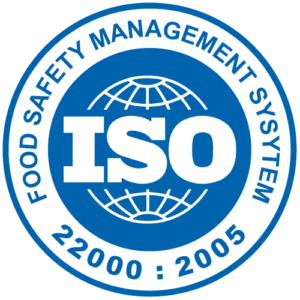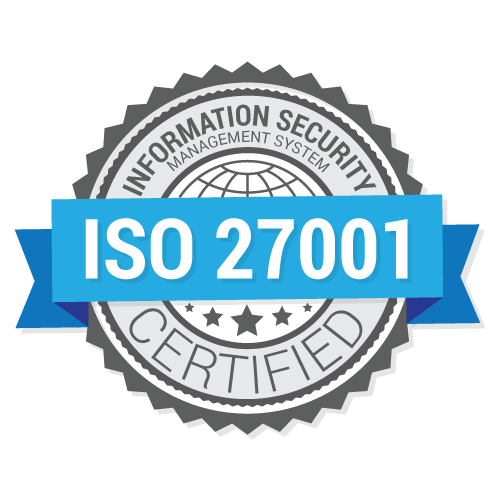ISO 9001 : 2015
ISO 9001 CERTIFICATION assures the Quality Management System of the organization.
ISO 9001:2015 Standard is organized in ten main clauses which include:
Clause 4 :Context of the organization
Clause 5 : Leadership
Clause 6 : Planning
Clause 7: Support
Clause 8: Operation
Clause 9: Performance evaluation
Clause 10 : Improvement
BENEFITS OF ISO 9001 CERTIFICATION
Transparency
Accountability
Quick information retrieval
System oriented & person independent
Customer Satisfaction.
International Recognition
Defines responsibility for all employees
& puts business on auto
Pilot mode
Reduce customer complaints and rejection
Consistency in product and service
Compliance with Regulatory requirements.
Enhancement in the competence level of Employee

ISO 14001: 2015
Benefits of ISO 14001:2015
- Improved environmental performance led by top management commitment
- Cost savings can be achieved through improved efficiencies in energy and water usage and through waste minimisation
- Reduced risk of pollution incidents and other releases to the environment and therefore avoidance of unnecessary clean up costs and/or enforcement action by regulatory bodies
- Compliance with legislation
- Reduced risk of non-compliance with legislation and subsequent costs/prosecution
- Improved brand image as customers will see an organisation that is in control of its impact on the environment
- Improved business focus and communication of environmental issues
- Improved profitability through costs reductions and improved customer satisfaction.

ISO 45001:2018
The ISO 45001 standard provides a framework for managing the prevention of work-related injuries, ill health, and death. The intention of this international standard is to improve and provide a safe and healthy workplace for workers and other persons who may be interacting with the organization.
Benefits of ISO 45001:2018
- Globalization: ISO 45001 puts your organization in an elite category of businesses, as it is an internationally recognized standard.
- Improvement in business performance: The implementation of an Occupational Health and Safety Management System based on ISO 45001 reduces workplace illnesses and injuries, and, in turn, increases productivity.
- Best practice creation: It provides consistency and establishes “best practices” for occupational health and safety throughout the organization.
- Hazard & risk identification: Conducting risk assessments in a systematic manner, improve the quality of the assessment.
- Lower insurance premiums: Having a recognized system in place provides an apron for attracting lower insurance premiums.
- Improvements in efficiency: The implementation of an OH&S Management System contributes to the reduction of accident rates, absenteeism levels, and downtime, all of which improve the efficiency levels of internal operations.
- Establishment of a safe working environment: Promotes the safety of all persons being affected by the organization’s activities.
- Focus: A culture that focuses on the “prevention of problems” rather than on the “detection of problems” is much more effective and rewarding to employees.
- Continual improvement: Encourages continual improvement, e.g. the adoption of the “zero accident” concept.

ISO 22000
A FSMS is a preventative approach used by an organization to identify, prevent and reduce food-borne hazards entering the food chain thereby improving the organization’s food safety performance. ISO 22000 is a risk based management tool for the food industry in order to assure food safety at human consumption
Benefits of ISO 22000
- Reduction in food safety incidents and cost.
- Compliance with legal and Codex HACCP principle.
- Lower risk of liability.
- Fewer errors and customer complaints.
- Continual improvement in products & processes.
- Resource optimization – internally and along the food chain.
- Sustainable food safety performance.
- Improves consumer / supplier /regulator confidence and relationships.
- Competitive advantage in the marketplace.
- Promotes international trade.
- Improved overall performance.

ISO 27001:2013
The ISO 27001:2013 standard adopts a process approach for establishing, implementing, operating, monitoring, reviewing, maintaining, and improving an organization’s information security management system.
The standard takes a comprehensive approach to information security. Assets that need protection range from digital information, paper documents, and physical assets (computers and networks) to the knowledge of individual employees. Issues you have to address range from competence development of staff to technical protection against computer fraud.
ISO 27001 will help you protect your information in terms of the following principles:
- Confidentiality ensures that information is accessible only to those authorized to have access.
- Integrity safeguards the accuracy and completeness of information and processing methods.
- Availability ensures that authorized users have access to information and associated assets when required.
Achieving ISO 27001 certification shows that a business has:
- Protected information from getting into unauthorised hands
- Ensured information is accurate and can only be modified by authorised users
- Assessed the risks and mitigated the impact of a breach
- Been independently assessed to an international standard based on industry best practices
Domains of ISO/IEC – 27001
- Security policy
- Organization of information security
- Asset management
- Human resources security
- Physical and environmental security
- Communications and operations management
- Access control
- Information systems acquisition, development, and maintenance
- Information security incident management
- Business continuity management
- Compliance
Benefits of ISO 27001:2013
- Increased reliability and security of systems and information
- Improved customer and business partner confidence
- Increased business resilience
- Alignment with customer requirements
- Improved management processes and integration with corporate risk strategies


